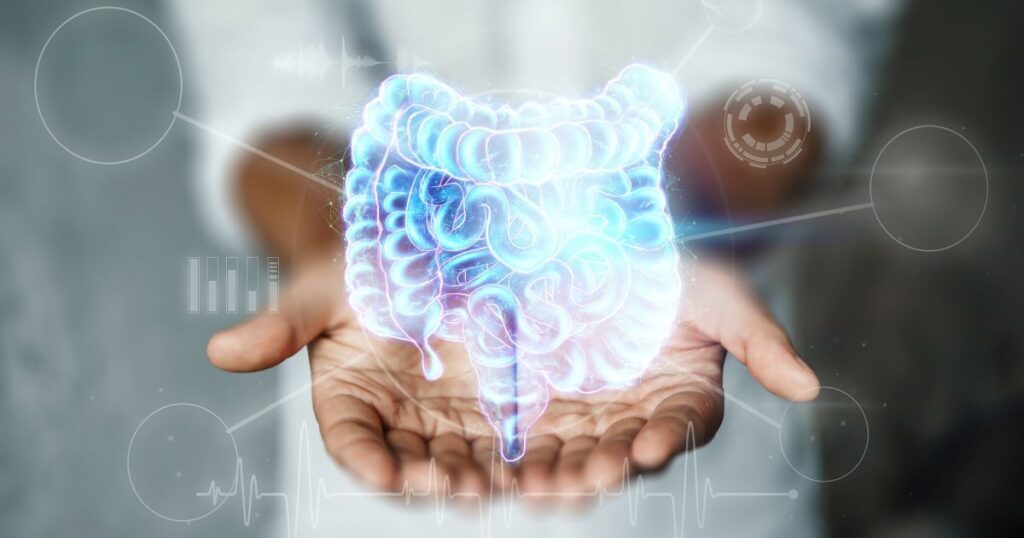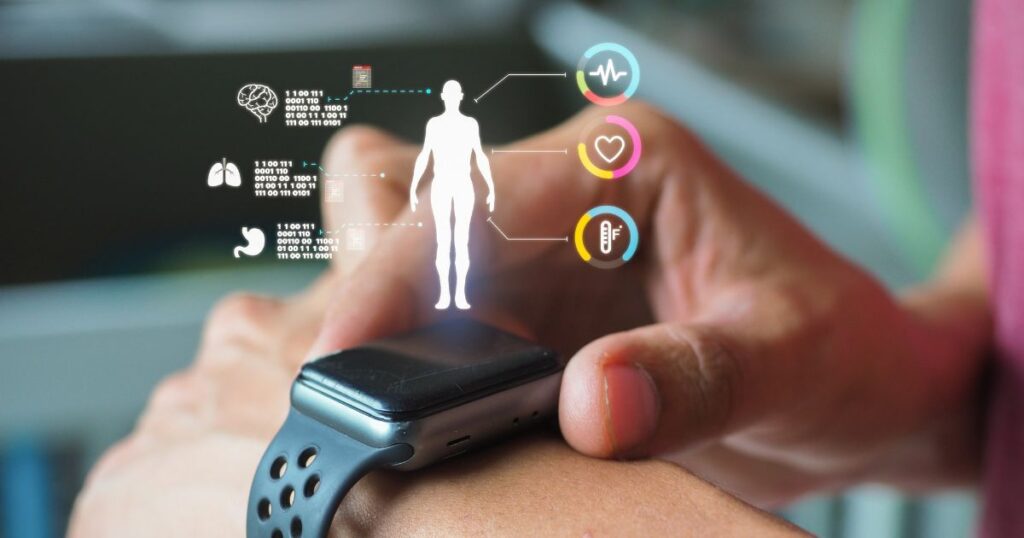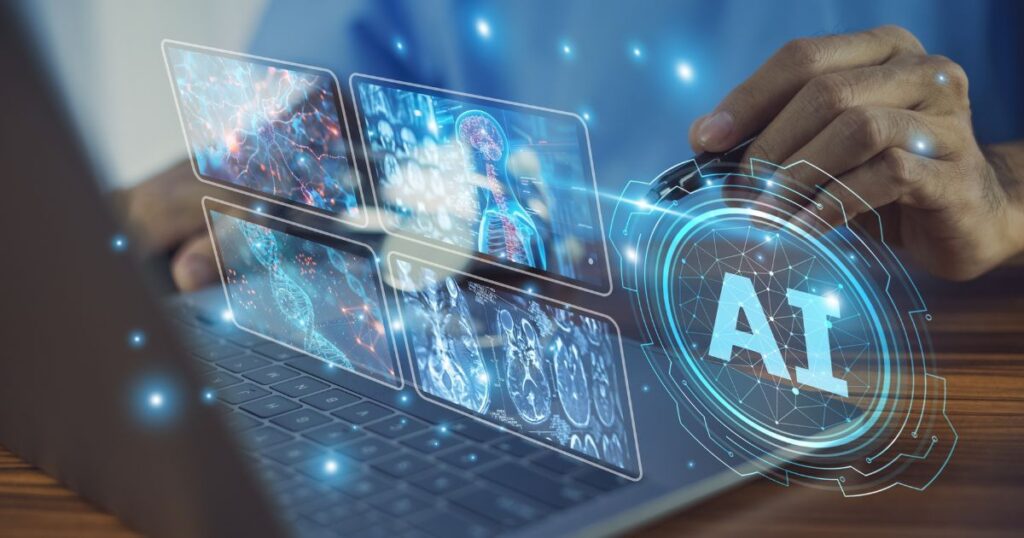Introduction
Welcome to the future of healthcare! As we step into 2025, we’re witnessing a monumental shift in how we diagnose, treat, and prevent illness. Thanks to the explosive growth of technology and innovation, healthcare is no longer confined to hospital walls. It’s smarter, faster, and more personal than ever before. Let’s break down the 10 health trends shaking up the industry right now.
Table of Contents
AI-Driven Diagnostics and Predictive Healthcare

Faster Diagnosis with Machine Learning
Artificial Intelligence (AI) isn’t just a buzzword—it’s a lifesaver. In 2025, AI-powered tools can analyze X-rays, MRIs, and lab results in seconds, often catching what human eyes miss.
Personalized Treatment Plans
AI also helps doctors tailor treatments to individual patients. By analyzing genetic makeup, lifestyle, and previous data, healthcare professionals can now deliver hyper-personalized care.
Table: AI in Diagnostics – Before vs. Now
| Feature | Before AI | With AI (2025) |
|---|---|---|
| Diagnosis Time | Days | Minutes |
| Accuracy | 85% | 95%+ |
| Personalization | Limited | Highly Customized |
Telemedicine 2.0 – Beyond Virtual Consultations

Remote Patient Monitoring (RPM)
RPM uses smart devices to monitor patients’ vitals at home. Doctors receive real-time updates and intervene before things escalate.
Virtual Health Assistants and AI Chatbots
AI chatbots are now trained to answer health-related questions, schedule appointments, and remind patients to take meds—24/7.
Wearable Tech and Biosensors

Real-Time Health Tracking
From smartwatches to glucose-monitoring patches, wearables are keeping tabs on everything—heart rate, blood sugar, sleep quality, and more.
Smart Implants
Implants like pacemakers now come equipped with data transmitters, sending critical info to your doctor instantly.
Genomics and Precision Medicine

CRISPR and Gene Editing Breakthroughs
CRISPR tech is more precise than ever, allowing scientists to edit defective genes and prevent hereditary diseases at the source.
Tailored Drug Development
Pharmaceuticals are no longer one-size-fits-all. Using genetic data, drugs are being crafted specifically for your body’s chemistry.
Mental Health Tech Revolution

AI-Powered Therapy Apps
Apps now use AI to offer real-time CBT (Cognitive Behavioral Therapy), mindfulness, and mood tracking, helping people manage mental health from their phones.
Brain-Computer Interfaces for PTSD and Anxiety
Experimental tech allows patients to control computers with their minds, aiding therapy for PTSD and anxiety disorders.
Holistic and Preventive Health Focus

Integrative Wellness Platforms
2025 is all about the whole person. Platforms that combine diet, fitness, mental wellness, and spiritual care are becoming mainstream.
Lifestyle Medicine
Doctors are prescribing yoga, sleep, and clean eating with as much confidence as pills—and it’s working!
Sustainable and Green Healthcare

Eco-Friendly Hospitals
New hospitals are built with solar panels, green walls, and smart lighting—reducing carbon footprints dramatically.
Low-Impact Medical Equipment
From biodegradable gloves to reusable surgical instruments, green healthcare is saving lives and the planet.
Blockchain in Health Data Security

Transparent and Secure Patient Records
Blockchain tech is being used to securely store patient records, allowing for instant sharing without risking privacy.
Smart Contracts in Insurance
Claims processing? Now automatic and error-free thanks to smart contracts—saving time, money, and frustration.
Robotics in Surgery and Elderly Care
Autonomous Surgical Robots
Surgeons now have robotic assistants with sub-millimeter precision, making surgeries safer and less invasive.
Companion Robots for Seniors
Loneliness among the elderly is being tackled with robotic pets and assistants that offer reminders, play games, and even chat.
Digital Twins in Healthcare
Virtual Simulation of Human Bodies
Digital twins are exact virtual replicas of patients, allowing doctors to simulate treatments before trying them on real bodies.
Training Medical Professionals
Medical schools now use digital twins for virtual dissections and diagnostic training—no cadavers required.
Conclusion
Healthcare in 2025 is smarter, faster, greener, and way more personal. From AI-powered diagnoses to digital twins and sustainable practices, we’re not just treating illness anymore—we’re predicting and preventing it. This revolution isn’t just for the future—it’s happening now. And the best part? It’s only getting better.
Frequently Asked Questions (FAQs)
1. What is the biggest health tech trend in 2025?
AI-driven diagnostics is currently leading the charge, transforming how doctors detect and treat illnesses.
2. Are wearable health devices accurate in 2025?
Yes, today’s wearables are highly accurate, FDA-approved, and even used in professional healthcare settings.
3. How is telemedicine evolving in 2025?
It’s evolving into a full-scale care system with remote monitoring, virtual assistants, and even AI diagnostics.
4. What is a digital twin in healthcare?
A digital twin is a virtual replica of a person used to simulate treatment outcomes and enhance training.
5. Can AI really replace doctors?
AI supports, not replaces, doctors by improving diagnostic accuracy and personalizing care.
6. What role does blockchain play in healthcare?
Blockchain ensures patient data privacy, transparent sharing, and smart insurance contracts.
7. Are gene editing technologies like CRISPR safe?
Yes, with regulations and advancements, gene editing is becoming safer and more precise every year.
8. How are robots helping in elderly care?
Robots now offer companionship, reminders, and even emergency assistance to senior citizens.
9. Is sustainable healthcare really making a difference?
Absolutely. Green initiatives in hospitals are reducing waste and saving energy while maintaining top care standards.
10. How can I keep up with these health trends?
Follow reputable health tech blogs, consult with progressive healthcare providers, and consider wearable tech or health apps.
Visit tips to live a happier life.










